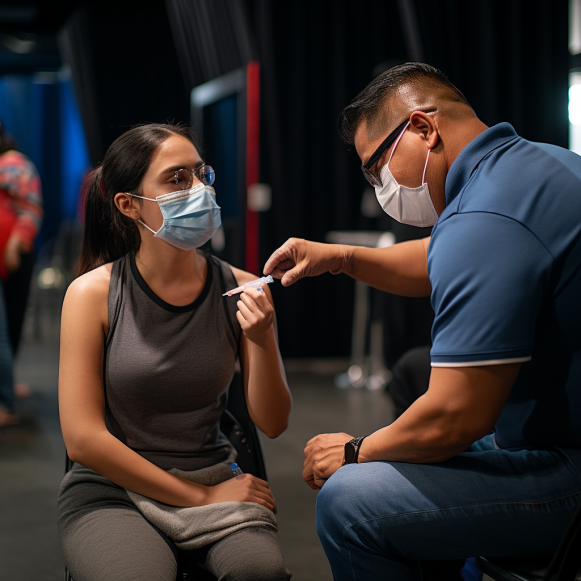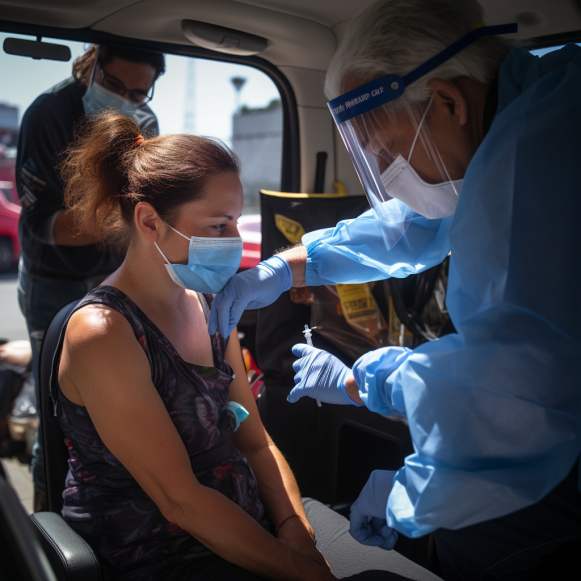Growing Number of Americans Believe Ivermectin Can Treat COVID-19

A recent survey found that more Americans believe the often-demonized anti-parasite drug is effective.
According to a recent university survey, an increasing number of Americans believe that ivermectin is an effective COVID-19 treatment.
According to the University of Pennsylvania’s Annenberg Public Policy Center, approximately 26% of respondents believe the drug, which has long been used to treat parasites, can treat the virus. This represents an increase from 10% in September 2021.
According to the survey, the percentage of people who called that statement “false” increased to 37% in November 2023, up from 27% in September 2021. In the same time period, the overall number of people who are unsure decreased from 63 percent to 38 percent.
Without going into detail, the survey’s authors stated that 26 percent of respondents “incorrectly” stated that ivermectin is effective, despite the fact that the Food and Drug Administration (FDA) has stated that the drug has not been authorized or approved for preventing or treating COVID-19, and that data shows it is ineffective against the virus. It has been approved to treat a variety of other illnesses, particularly those caused by parasites, and the World Health Organization (WHO) considers it an essential medicine for treating a variety of ailments.
However, the World Health Organization issued a warning last week, stating that it strongly advises against giving ivermectin to patients with “non-severe” COVID-19 and strongly advises against giving the drug to those with severe or critical COVID-19.
According to a 2022 Epoch Times review, roughly half of the studies cited by the FDA in saying that ivermectin isn’t safe or effective against COVID-19.
The FDA has repeatedly stated in social media posts and statements that ivermectin should not be used to treat the virus. Several of those comments prompted doctors to file a lawsuit, arguing that the FDA should not be making recommendations and that its role is to approve drugs. Some people have also filed lawsuits against hospitals in order to force medical officials to allow its use in the treatment of COVID-19.
According to Dr. Pierre Kory, who frequently prescribes ivermectin for COVID-19, the FDA’s stance on ivermectin “is one of the most glaring examples of the corruption of modern evidence-based medicine.”
“There’s one message they want everyone to understand, and that message is that ivermectin doesn’t work,” the doctor said. “That is their conclusion, not a scientific one.” That is their twisted and perverted interpretation of the data.”
The Annenberg Public Policy Center survey, which polled 1,500 Americans last month, also discovered that fewer Americans believe that getting the COVID-19 vaccine is safer than contracting the virus itself. It found that in April 2021, 75 percent agreed, but by last month, only 63 percent agreed.
According to the survey, respondents increasingly believe that the COVID-19 shot is unsafe, rising to 24 percent last month from 18 percent in August 2022.
According to the public policy center, the rise in Americans’ skepticism about COVID-19 vaccines and other vaccines is due to a “belief in health misinformation.”
Meanwhile, according to recent data from the Centers for Disease Control and Prevention (CDC), approximately 14% of American adults and 5% of children have received one of the updated COVID-19 booster shots, which were approved by the FDA about two months ago. It is estimated that 36 million adults and 3.5 million children have received the vaccine.
Prior updated COVID-19 vaccines, which were available beginning in the fall of 2022, were administered to approximately 56.5 million people, or approximately 17 percent of the total U.S. population.
In a September poll, roughly 23% of American adults said they would definitely get one of the new vaccines, while another 23% said they would most likely get one. However, roughly half of those polled said they wouldn’t or probably wouldn’t get the shot.






